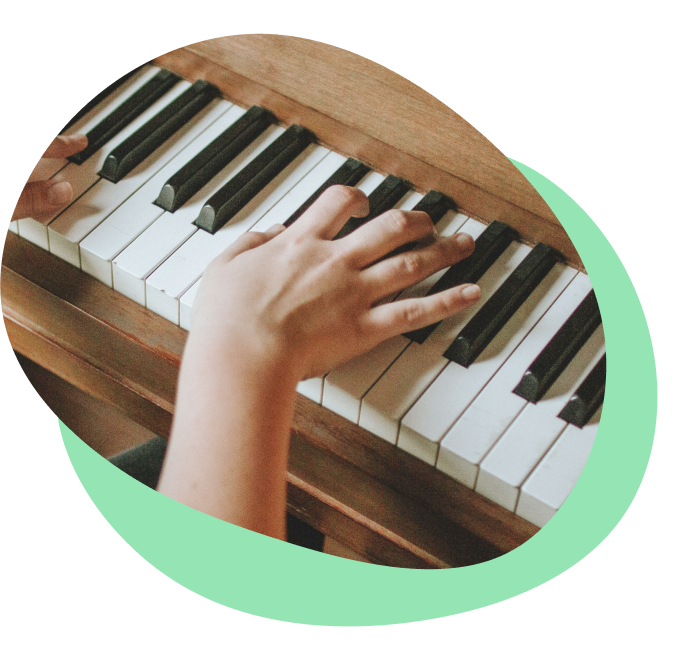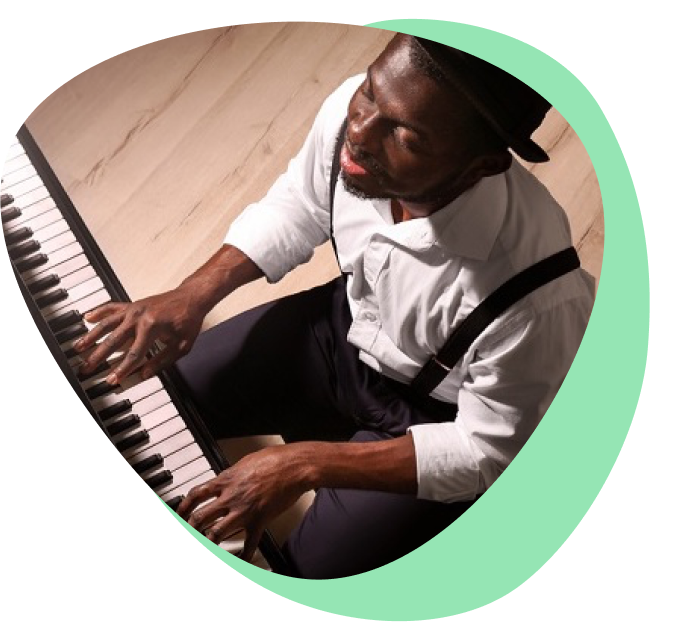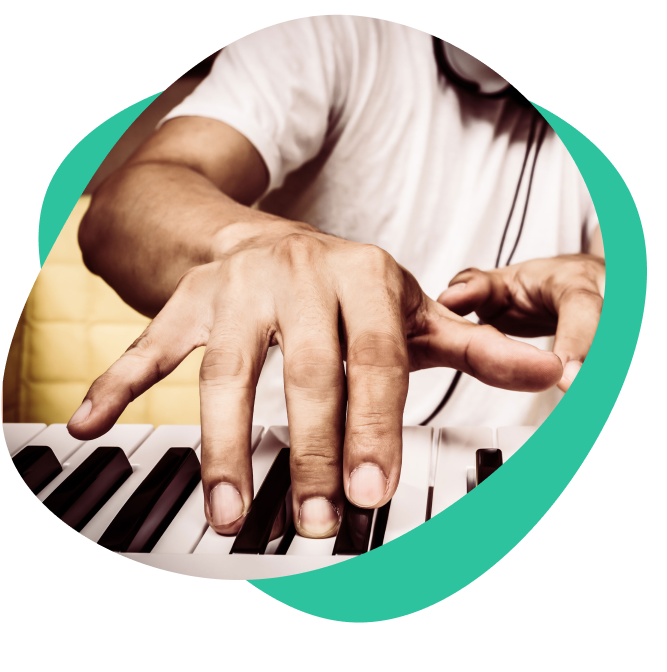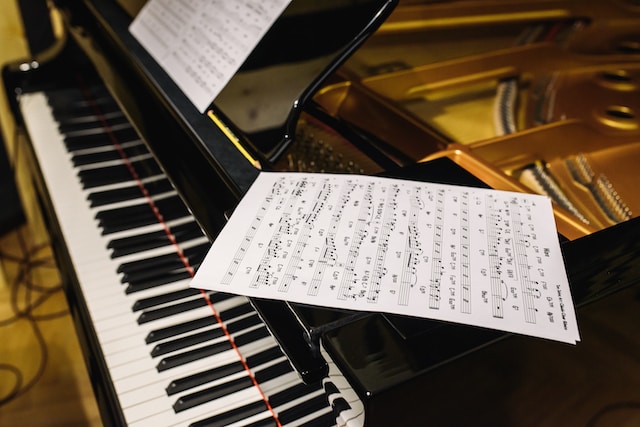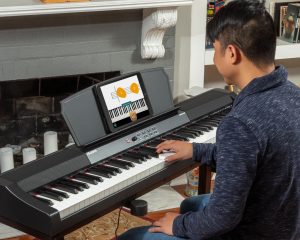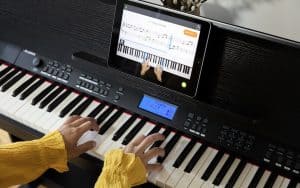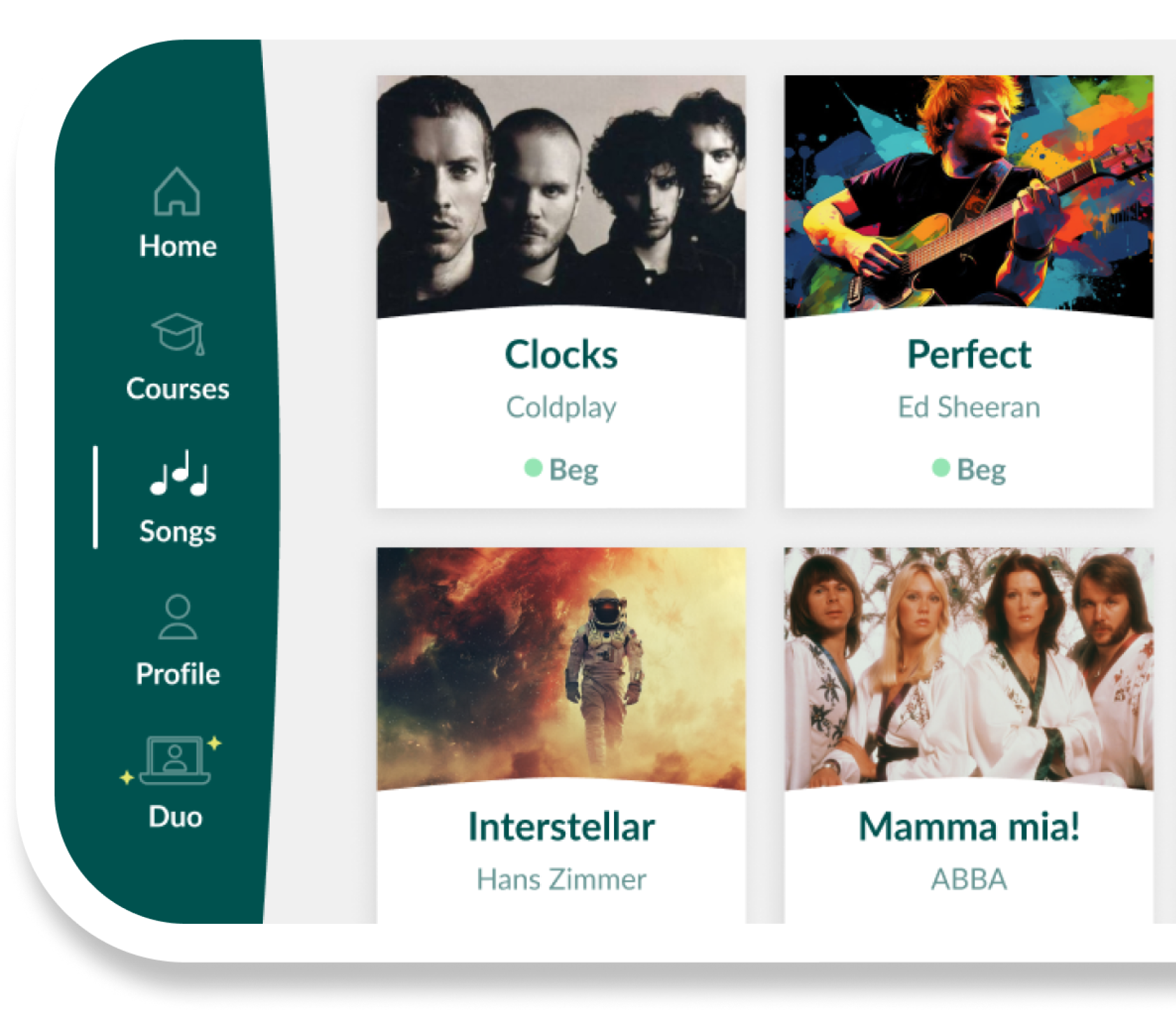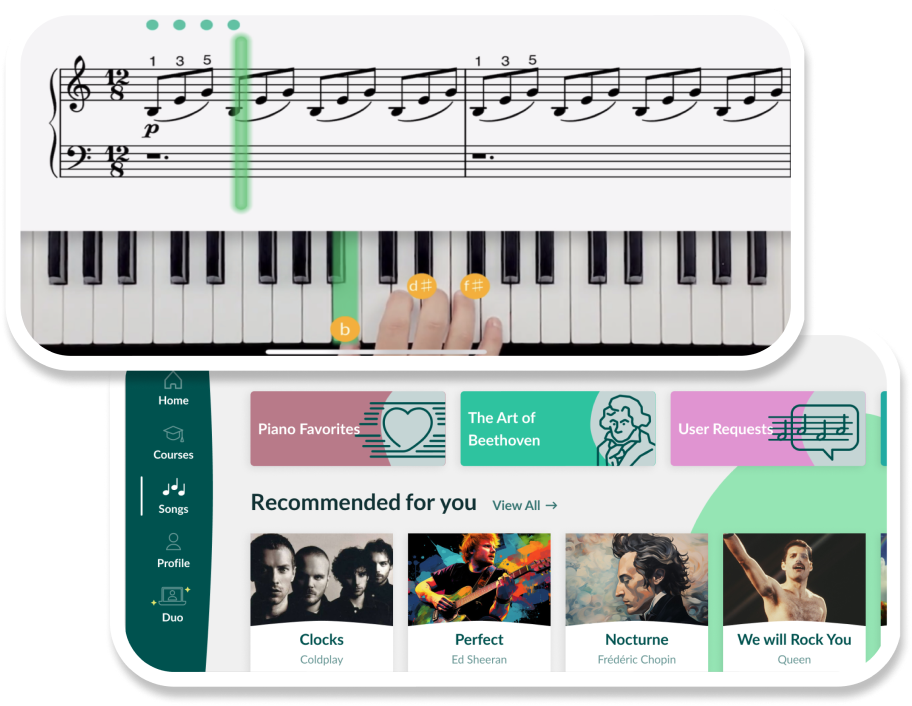In simple terms, a piano recital is a performance where you showcase your skills on the piano. Think of it as your moment to shine, to show off the hard work you’ve put into mastering those keys.
If you’re asking yourself how to prepare for a piano recital, you’re in the right place. This article will be your backstage pass to getting recital-ready, from practice routines to the mental prep you’ll need to hit all the right notes.
The importance of practice performances
Ever heard the saying, “Practice makes perfect”? Well, in the world of piano recitals, we like to say, “Practice performances make you recital-ready.” A practice performance is essentially a dress rehearsal for the big day. It’s your chance to simulate the real deal, from the opening chord to the final bow.
Creating a realistic practice environment
Doing a practice piano recital isn’t just about running through your pieces; it’s about creating an environment that mimics the actual recital. Here are the steps that will definitely help to get the most out of it:
- Set the stage: Literally. Arrange your practice space to resemble the recital venue.
- Invite an audience: This could be family, friends, or even your pet. The idea is to get used to playing in front of others.
- Dress the part: Wear what you plan to wear at the actual recital. Yes, even the shoes!
- Run the show: Play your pieces in the order they’ll appear in the recital. Don’t forget to announce each piece just like you would on the big day.
When to schedule a practice recital
Timing is everything. Aim to schedule your first practice recital about a month before the actual event. This gives you ample time to identify areas for improvement and work on them. As you get closer to the recital date, increase the frequency of these practice performances.
The basics of recital preparation
Understanding the basics of recital preparation is essential for delivering a memorable and impactful performance. By exploring these fundamental aspects, you’ll gain valuable insights into how to prepare effectively for a recital and ensure that your performance leaves a lasting impression on your audience.
- Choosing your piece wisely: The first step in getting ready for a piano recital is picking the right piece. Choose something that you not only love but also feel confident playing.
- Working on perspective: Remember, a recital is not a test—it’s a celebration of your musical journey. Replace your anxiety with excitement as your perspective.
- To memorize or not to memorize: Ah, the age-old question. Memorizing your piece can free you to connect more emotionally with the music. But having sheet music as a backup never hurts.
- Recording yourself: Use your phone to record practice sessions. Playback can be a game-changer in identifying areas for improvement.
- Learning from the pros: Listen to recordings: One of the best ways to prepare is to listen to professionals perform the piece you’ve chosen. Analyze their technique and try to incorporate some of their styles into your own rendition.
- Breathing techniques: Deep, controlled breathing can help manage stage fright. Try inhaling for four counts, holding for four, and exhaling for four.
- The importance of rest: Don’t underestimate the power of a good night’s sleep before your recital. Your brain and fingers will thank you.
- Breakfast: The most important meal of the day: Fuel up with a balanced meal. Think proteins and slow-burning carbs to keep your energy steady.
- Setting the tone for the day: Start your day with some light stretching and positive affirmations. Set the tone for success.
- Warming up: A good warm-up is essential. Simple piano scales or finger exercises can get those digits ready to dance on the keys.
- Avoid last-minute practice: Cramming minutes before you go on stage can frazzle your nerves. Trust your preparation and take a few moments to center yourself.
- The art of continuous playing: Mistakes happen. The trick is to keep going. In a recital, there’s no backspace key, only the art of continuous playing.
The emotional and psychological aspects
Let’s get real for a second. Preparing for a piano recital isn’t just about the notes; it’s also about the mental notes you need to hit. Your mindset can be your best friend or your worst enemy on the big day.
- Dealing with nerves: Nerves are the uninvited guests that crash almost every first piano recital. The key is not to eliminate them but to use them to your advantage. A little adrenaline can actually enhance your performance.
- Relaxation techniques: From deep breathing to progressive muscle relaxation, there are various techniques to help you keep your cool. Experiment with a few to discover which one suits you best.
- Musical anchors: Identify certain “anchor” notes or phrases in your piece—spots where you feel most comfortable. If you get lost or flustered, these anchors can help you find your way back.
- Visualization and mental imagery: Imagine yourself on stage, with the spotlight focused on you, while you flawlessly execute every piano note. Visualizing a successful performance can enhance your confidence and alleviate anxiety.
- Your music as an audio guide: Think of your music as a roadmap for your emotional journey. Let it guide you through the highs and lows, the crescendos and the pauses. When you connect emotionally with your piece, the audience will too.
The audience factor
The audience factor in piano recital preparation is an intriguing and multifaceted topic that explores the profound influence of the listeners on the pianist’s preparation, mindset, and ultimately, the delivery of their performance. In this exploration, we delve into the symbiotic relationship between the pianist and the audience, uncovering the ways in which understanding, connecting with, and engaging the listeners can elevate a piano recital from mere notes on a score to an enchanting and transformative musical experience.
Dealing with distractions during recitals
Ah, distractions—the uninvited guests at every piano recital. From coughs to phone rings, distractions are bound to happen. How you deal with them can make or break your performance.
- Stay focused: Keep your eyes on the keys and your mind on the music.
- Don’t panic: If a distraction throws you off, take a brief pause to regain your composure before continuing.
Boosting focus with the distraction game
Want to level up your focus? Try the distraction game during your practice performances. The rules are simple:
- Invite distractions: Ask your practice audience to intentionally create distractions.
- Keep playing: Your goal is to continue playing without missing a beat.
The distraction game is like focus boot camp. It prepares you for any curveballs the actual recital might throw your way.
Your recital roadmap
Remember, a recital isn’t just a performance; it’s a celebration of your musical journey. From choosing the right piece to mastering the art of continuous playing, every step you’ve taken has led you to this moment.
But hey, let’s not forget the audience. They’re not just spectators; they’re part of your performance. Your connection with them can turn a good recital into an unforgettable one. And distractions? You’ve trained for them like a pro athlete. Bring it on!
And if you’re looking for a comprehensive guide to get you recital-ready, Skoove’s got your back. Our interactive online piano lessons can be a game-changer in your preparation journey.
Author of this blog post:

Eddie Bond is a multi-instrumentalist performer, composer, and music instructor currently based in Seattle, Washington USA. He has performed extensively in the US, Canada, Argentina, and China, released over 40 albums, and has over a decade experience working with music students of all ages and ability levels.




